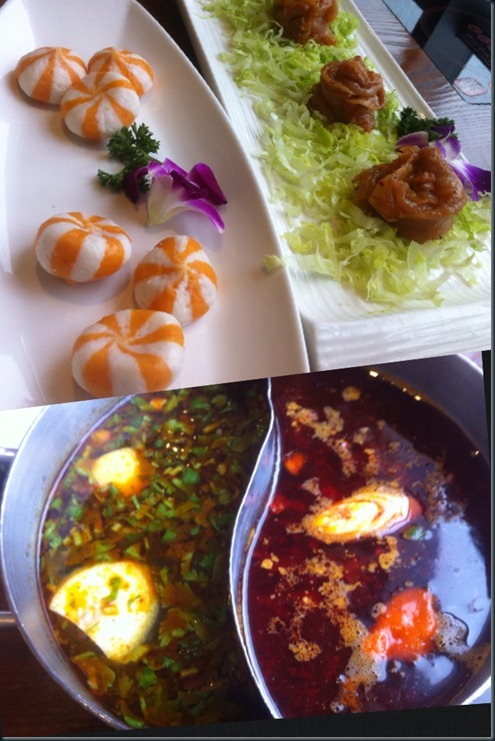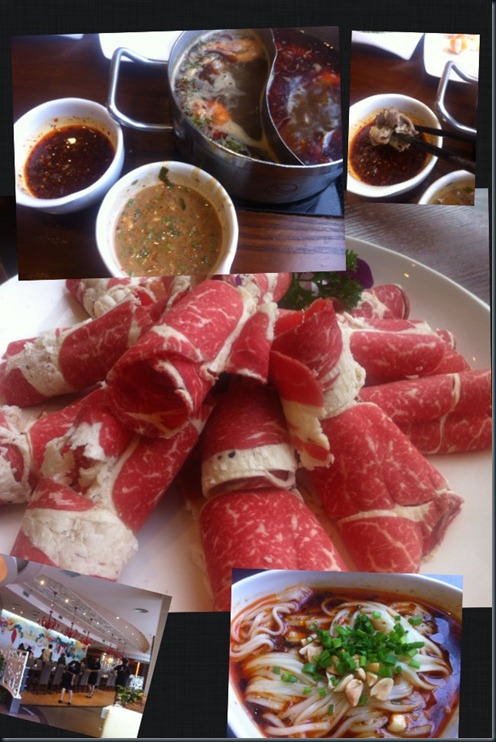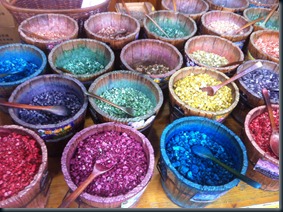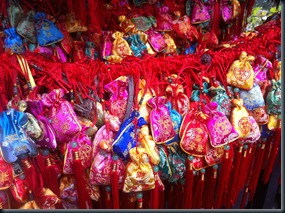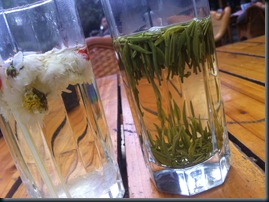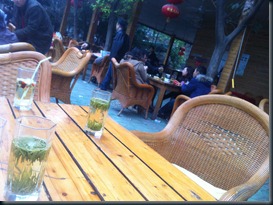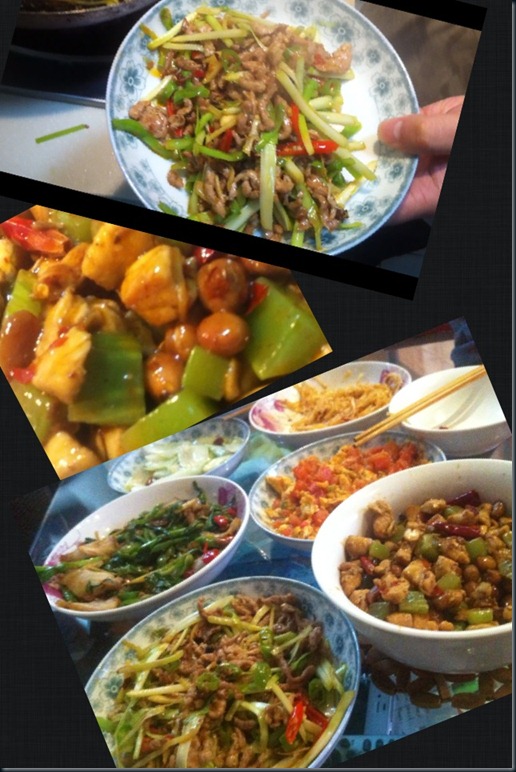Monthly Archives: November 2012
Steven Sinofsky quits Microsoft
Even Steven Sinofsky is gone. I had talked about my concerns with Microsoft just few weeks ago but this announcement comes to me as a surprise. There is a lot of speculation on the reasons why Steven quit, and forget about his official goodbye note which is obviously forged so shareholders don’t take his move as a destabilizing sign for the company. For sure I can say that Steven was highly respected in Redmond, I think that in some cases he was way more respected than Ballmer. Indeed many MSFT’s employees thought that Sinofsky was the number one candidate for replacing Ballmer as the company CEO. Don’t get me wrong, Ballmer remains an icon for some Microsoft old timers like me, how can people forget his drive and enthusiasm at the company meetings? But at that time he was the VP of Sales, totally different role. As a CEO Ballmer has failed to deliver and many are tired of his leadership. For sure Ballmer is a guy that will not let anything or anybody stand in his way, that could be why I saw so many top executives quietly and surprisingly leaving the company in the last few years. Steve Sinofsky’s announcement that he is going to seek for other opportunities says it all and quite honestly having done exactly the same thing I totally can understand how he feels: it’s only politics that rule Microsoft these days. Last but not least, I wonder if this had anything to do with it…
Dulcis in fundus
L’ultimo giorno a Chengdu l’ho voluto trascorrere da solo, dedicarmi un po’ a me stesso. Mi sono alzato tardi e ho lavorato un po’ perché dovevo seguire uno dei miei ragazzi a Pechino, poi sono sceso in strada perché avevo fame e volevo trovare un ristorantino carino dove finire in bellezza questa mini-vacanza. Avevo ancora voglia di assaggiare qualcosa di buono, speravo in un ristorante di Hot Pot di Chongqing ma era quasi impossibile che potessi trovarlo facilmente da solo senza saper leggere il Cinese. Così mi sono incamminato per strada molto spontaneamente e ho incominciato a esplorare la città, il che mi ricordava i vecchi tempi quando viaggiavo e c’era quell’incertezza nell’aria che rendeva tutto simile a un’avventura. Mi sono imbattuto subito in una zona dove c’era uno di quei plaza Cinesi dove trovi negozi di tutte le firme, Louis Vitton, Prada, Miu Miu, Boss, Armani Posche e per fino un negozio di abbigliamento della Maserati… E’ incredibile quanti soldi ha accumulato sto paese, pensavo, altro che Monti. Una volta entrato però mi sono reso conto che il plaza fosse semivuoto a parte qualche sporadico cliente. “Non e’ un buon segno” pensavo. C’erano solo un paio di ristoranti al quinto piano: “e per forza, se uno apre un ristorante qui chi ci viene?”. Mi sentivo un po’ perso e pensavo a cosa potrebbe succedere a tutti questi negozi vuoti se dovesse realmente esserci una crisi. Ma vabbe’ ho pensato che fosse meglio lasciar perdere i problemi economici. Così sono uscito e ho preso altre strade, in lontananza vedevo uno Starbuck situato in un altro plaza molto più modesto e tranquillo di quello in cui ero stato. Una volta arrivato ho preso l’ascensore, anche lì c’erano cinque piani, in ognuno dei quali un ristorante. Mentre salivamo con l’ascensore sentivo questo profumino davvero interessante. Arrivati all’ultimo piano sono sbucato in un locale abbastanza elegante ma l’ambiente e il profumo non mi convincevano. Così sono sceso a piedi al piano inferiore, quatto quatto, e una volta arrivato al quarto piano il mio fiuto felino mi avvisava che eravamo finalmente arrivati al posto che stavamo cercando. Mi hanno portato il menù in Cinese ma su tutte una scritta era leggibile: Chonqjing Hot Pot. Non ci potevo credere, il destino mi aveva portato esattamente dove volevo. Non e’ la prima volta che succede. E’ stato un pranzo fantastico per quanto era buono, e’ stato come baciare una donna per la prima volta. Che gusto, mi sono sentito come a casa mia. Non avevo mai avuto occasione di provare un ristorante che servisse la famosa Hot Pot di Chongjqing. Ne avevo sentito parlare da Mirella, Anna, e forse anche da altre. Ricordo che pure Faye, che era di Chongjing, me ne aveva parlato, molto tempo fa. Sono stato fortunato. E’ stato un pranzo di quelli da leccarsi i baffi. Peccato che ero da solo, tuttavia e’ stato piacevole godersi questa esperienza senza che nessuno potesse provarci a rovinarmi la festa. Meglio soli che mal accompagnati ma appena rientrato a Pechino dovrò mettermi a dieta…
Thank you Chengu
I had an awesome time in Chengdu. It was really helpful to break away from Faye and Beijing, relax and spend time with great people. Now I understand why everybody from Sichuan has been telling me that they love living there and hate Beijing. Chengdu has been named the China’s 4th-most livable city for 5 years in a row by the China Daily. And the food was just delicious, Sichuan food has been my favorite food since I moved to China and I can’t believe I waited for so long to go there and actually try the real thing. Sichuan food is very spicy. Local specialties include Grandma Chen’s Tofu (Mapo doufu), Chengdu Hot pot, and Dan Dan Mien (literally meaning, “Noodles carried on a pole” (Dan Dan Noodles). All three dishes are very spicy. Mapo Doufu and Dan Dan Mien contain Sichuan peppers (huājiāo; 花椒; literally “flower pepper”) and I love that flavor. Interesting enough an article by the Los Angeles time called Chengdu “China’s party city” for its carefree lifestyle. Chengdu outnumbers Shanghai in the number of tea houses and bars despite having less than half the population. The inhabitants have a reputation in China for having a laid-back attitude and for knowing how to enjoy life.
The local snacks in Chengdu are known for creative ingredients, skilled preparation, wide variety, and cheap prices. Tastes range from sweet and spicy to sour and hot in a range of cooking techniques including frying, stewing, baking, steaming and boiling. Some of the more common snacks found across town include noodles, wontons, dumplings, pastries, tangyuan (sweet rice balls), drinks, salads, and soups. It is indeed a culinary experience not to miss.
Chengdu boasts a rich culture of tea and cuisine which adds traits of romance and leisure to the people’s characteristics. According to Gou, the pursuit of happiness is rooted in the nature of the 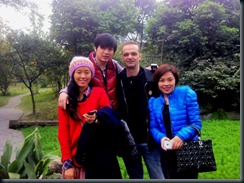 Chengdu people. I was lucky enough that my best friend in Beijing, Sara, is also from Chengdu so she put me in touch with some of her best friends there. This very kind people were so hospitable and took the time to show me JinLi, a popular commercial and dining area resembling the ancient-style architecture of West Sichuan . “Jinli” is the name of an old street in Chengdu dating from the Han Dynasty and means “making perfection more perfect”. Jinli Street was one of the oldest and the most commercialized streets in the history of the Shu and was well-known throughout the country during the Qin, Han and Three Kingdoms Periods. Many aspects of the urban life of Chengdu are present in the current-day Jinli area: teahouses, restaurants, bars, theatrical stages, handicraft stores, local snack vendors and specialty shops. Her’s some pics from Jinli and some of the snacks we tried:
Chengdu people. I was lucky enough that my best friend in Beijing, Sara, is also from Chengdu so she put me in touch with some of her best friends there. This very kind people were so hospitable and took the time to show me JinLi, a popular commercial and dining area resembling the ancient-style architecture of West Sichuan . “Jinli” is the name of an old street in Chengdu dating from the Han Dynasty and means “making perfection more perfect”. Jinli Street was one of the oldest and the most commercialized streets in the history of the Shu and was well-known throughout the country during the Qin, Han and Three Kingdoms Periods. Many aspects of the urban life of Chengdu are present in the current-day Jinli area: teahouses, restaurants, bars, theatrical stages, handicraft stores, local snack vendors and specialty shops. Her’s some pics from Jinli and some of the snacks we tried: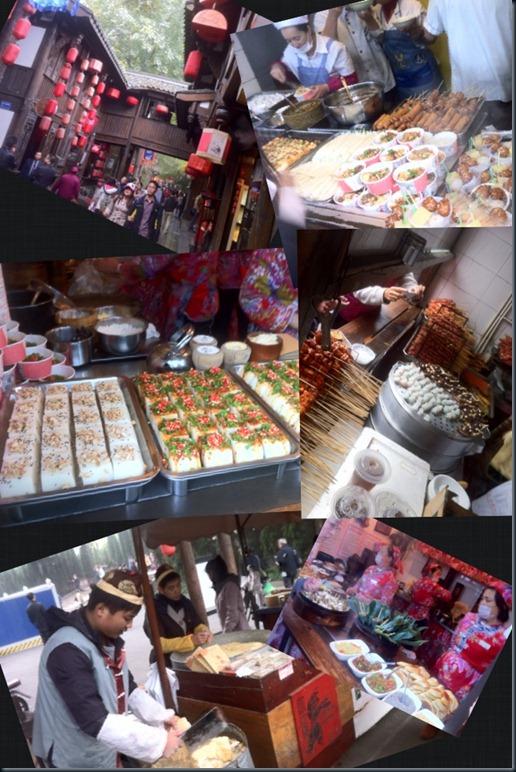
Here you can also buy the incense that comes in different colors. The incense is sold in little bags that are hanged on the trees representing prayers to the Buddhist gods.
You can also try the local specialty “rabbits heads” but I didn’t have the courage to do that…
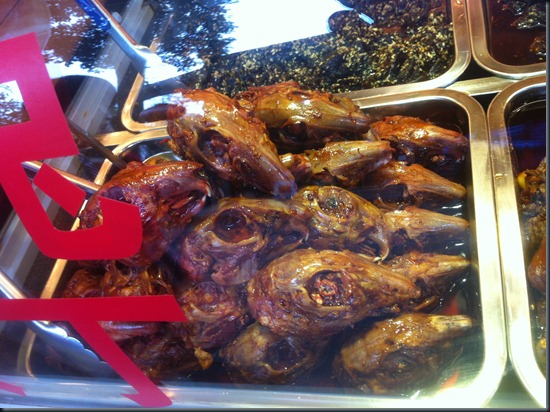 After the visiting Jingli my friends took me to have lunch to a typical Sichuan restaurant where I got lucky to try the authentic 水煮鱼 the famous fish served in bowl of oil with a ton of pepper and chili. Fantastic.
After the visiting Jingli my friends took me to have lunch to a typical Sichuan restaurant where I got lucky to try the authentic 水煮鱼 the famous fish served in bowl of oil with a ton of pepper and chili. Fantastic.
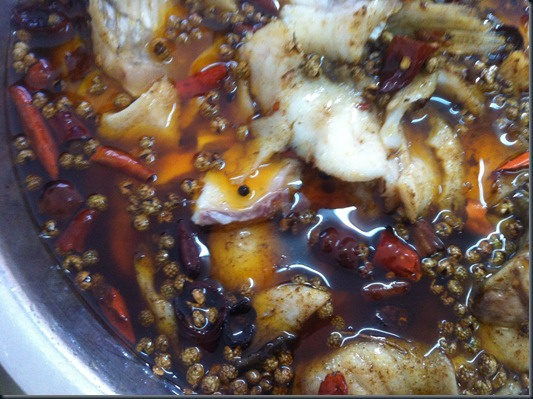 And then we spent the afternoon to a typical teahouse in the outskirts of Chengdu, relaxing and having a good time in Sichuan style
And then we spent the afternoon to a typical teahouse in the outskirts of Chengdu, relaxing and having a good time in Sichuan style
Later they invited me for dinner at their house and they were so kind to cook for me. I felt like I was eating non-stop. They indeed were so nice and hospitable people.
It was indeed an unforgettable day in Chengdu!
